Text

we are not getting out of the plant blog allegations with this one
#i do not endorse the wording of the last option bc it's annoying and also there are non brassica vegetables. anyway#brussel sprouts and broccoli#all the other ones i will be willing to try but probably wont like#brassicas rlly are insane for how many varieties one guy can have tho
5K notes
·
View notes
Text

Currently Reading
Dave Jacke with Eric Toensmeier
EDIBLE FOREST GARDENS
VOL 2 - DESIGN & PRACTICE
Ecological Vision and Theory for Temperate Climate Permaculture
116 notes
·
View notes
Text
I need to get some thoughts out about the settler colonialism which created IU and other campuses and Indiana and their complicity in the genocide in Gaza and their response to protests. Connections that aren't wholly unique to Indiana but which are not not being made in discussions of the protests
638 notes
·
View notes
Text

[photo id: several square-ish pots made out of folded newspaper sitting on a wooden table.]
It’s that time of year to start thinking about seed starting, so I decided to try making pots! They’re a little smaller than I really want, but they should do just fine. And better yet, they cost nothing but time, which I have way too much of right now!
1K notes
·
View notes
Photo
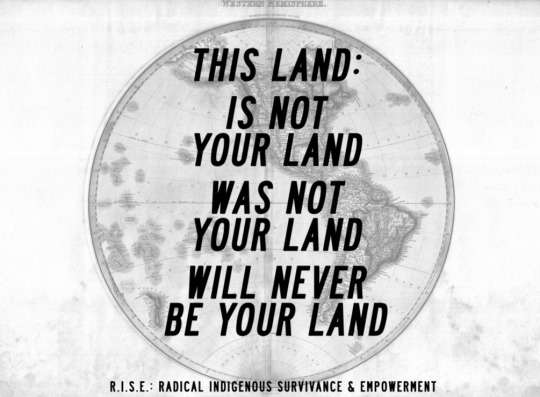
R.I.S.E.
This Land, 2013
R.I.S.E.
Radical
Indigenous
Survivance &
Empowerment
232 notes
·
View notes
Text
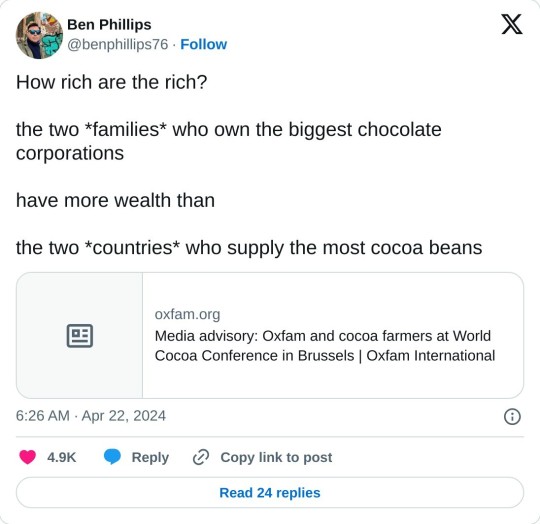
Lindt, Mondelēz, and Nestlé together raked in nearly $4 billion in profits from chocolate sales in 2023. Hershey’s confectionary profits totaled $2 billion last year.
The four corporations paid out on average 97 percent of their total net profits to shareholders in 2023.
The collective fortunes of the Ferrero and Mars families, who own the two biggest private chocolate corporations, surged to $160.9 billion during the same period. This is more than the combined GDPs of Ghana and Ivory Coast, which supply most cocoa beans.
Decades of low prices have made farmers poorer and hampered their ability to hire workers or invest in their farms, limiting bean yield. Old cocoa trees are particularly vulnerable to disease and extreme weather. Many farmers are abandoning cocoa for other crops, or selling their land to illegal miners.
3K notes
·
View notes
Text
"In a historic “first-of-its-kind” agreement the government of British Colombia has acknowledged the aboriginal ownership of 200 islands off the west coast of Canada.
The owners are the Haida nation, and rather than the Canadian government giving something to a First Nation, the agreement admits that the “Xhaaidlagha Gwaayaai” or the “islands at the end of world,” always belonged to them, a subtle yet powerful difference in the wording of First Nations negotiating.
BC Premier David Eby called the treaty “long overdue” and once signed, will clear the way for half a million hectares (1.3 million acres) of land to be managed by the Haida.
Postal service, shipping lanes, school and community services, private property rights, and local government jurisdiction, will all be unaffected by the agreement, which will essentially outline that the Haida decide what to do with the 200 or so islands and islets.
“We could be facing each other in a courtroom, we could have been fighting each other for years and years, but we chose a different path,” said Minister of Indigenous Relations of BC, Murray Rankin at the signing ceremony, who added that it took creativity and courage to “create a better world for our children.”
Indeed, making the agreement outside the courts of the formal treaty process reflects a vastly different way of negotiating than has been the norm for Canada.
“This agreement won’t only raise all boats here on Haida Gwaii – increase opportunity and prosperity for the Haida people and for the whole community and for the whole province – but it will also be an example and another way for nations – not just in British Columbia, but right across Canada – to have their title recognized,” said Eby.
In other words, by deciding this outside court, Eby and the province of BC hope to set a new standard for how such land title agreements are struck."
-via Good News Network, April 18, 2024
13K notes
·
View notes
Photo
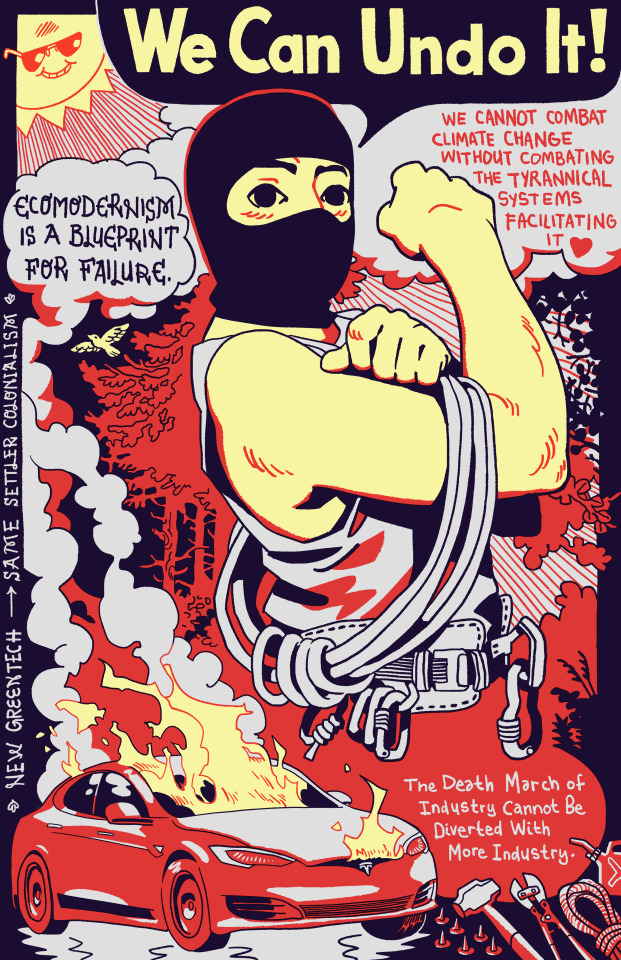
Earthday is fight day
If your “green” project relies on the same practices of land theft, resource extraction, and labor abuse that brought us to this point - then the grifters supporting it are just another variety of climate change deniers.
Squat the trees while we still got trees. Defend what you love.
3K notes
·
View notes
Text
Notes as an indigenous farmer for other farmers, gardeners, looking to seek to perform land remediation, restorative agroforestry, etc.
First, look up historical weather and current weather zoning, climate change is real, the area may no longer be suitable for specific plants anymore.
Consider invasive plants, animals, worms(yes like bees there are invasive worms) , etc
Assess potential soil and water pollution sources then create a remediation plan depending on time and feasibility.
Work with the land, not against it, this is pretty simple, if you plan to create rain collecting channels for your small garden, then it's to slope where the land slopes for you.
Composting is great but you also need to understand microbial/fungal symbiosis and creating microbiomes that allow for effective compost break down.
You can buy cheap microbial solutions that are epa or environmental sound, back reference any microbial cultures with academic papers, if unsure how to do the research then it is fine with a variety as this simulates closely to nature.
Look into outdoor mushroom farming, this is pretty common in my community in our Chināmitl /mīlpan system, it's not as hard as most resources online will tell you, especially if you're sticking with native to your area mushrooms.
Avoid commercial strains for cultures especially if they're non native as this can lead to potential invasives.
Yes fungus /mushrooms can be invasive, please never put golden oyster outside.
You can also buy microremediating solutions for soil/water contamination.
Many universities offer resources to help find soil or water testing companies for accessible to no costs even, this is useful if you want to assess variety of conditions.
Additionally microbe /fungal based solutions are most used in our community as it helps reduced overall pests and diseases to our plants.
If you have tons of untreated wood ash (burn untreated wood, get wood ash) this is useful for variety of things, as this ties into controlled burning, true slash and burn, etc. Essentially nutrients are allowed to disperse back in the ground, be aware of heavy metal and other contamination considerations as always.
Indigenous seed banks do exist for non indigenous people, also look into seed conservation projects and seed banks that look to preserve seed lineages. While heirloom is nifty, it does only go so far back around an early colonial era.
35 notes
·
View notes
Text
Florida Gov. Ron DeSantis has signed a law that prevents cities or counties from creating protections for workers who labor in the state's often extreme and dangerous heat.
Two million people in Florida, from construction to agriculture, work outside in often humid, blazing heat.
For years, many of them have asked for rules to protect them from heat: paid rest breaks, water, and access to shade when temperatures soar. After years of negotiations, such rules were on the agenda in Miami-Dade County, home to an estimated 300,000 outdoor workers.
But the new law, signed Thursday evening, blocks such protections from being implemented in cities and counties across the state.
1K notes
·
View notes
Text
34K notes
·
View notes
Photo

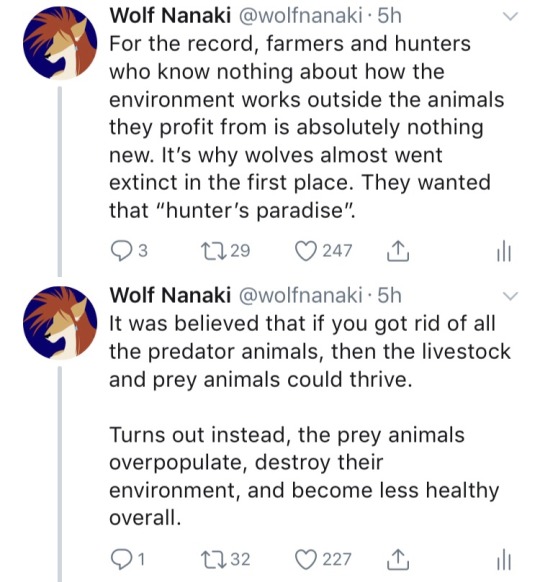
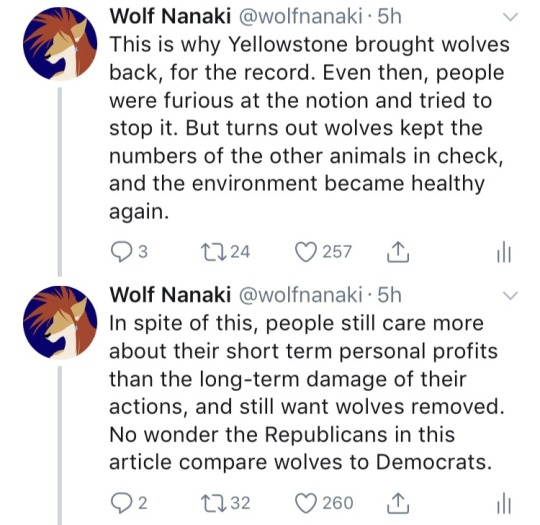
So one of my tweets kinda blew up. :v
#the conversation around wolves drives me insaneeeeee#like. yes. we need wolves. fucking obviously#also yes the family structure thing. its very sad :(#ecology
258K notes
·
View notes
Text
For usamericans who may not know how to support decolonization and indigenous people in their every-day lives, may I suggest checking this list of native-owned businesses, curated and maintained by indigenous folks. There's food, candles, cbd pre-rolls, clothes, jewelry, hats, baby things, handicrafts, art, and hundreds of other useful and wonderful things. I check this list before I buy non-native owned as often as I can.
Also check out the native-owned (pulitzer-prize winner Louise Erdrich started it!) bookstore and press Milkweed Editions (dot org) for an amazing selection of books by indigenous authors. I recommend Braiding Sweetgrass by Robin Wall Kimmerer (a collection of essays that will change your thinking if your mind is open at all) that's great for sitting down to read for bite-sized chunks. For book recommendations, check out this infographic!
Do you own property and want to support landback but still need a place to live? Odds are good that there's established precedence in your area to transfer its jurisduction to a local tribe and pay your land taxes and etc to them instead of the settler government!
Here is a list of charities and fundraisers for indigenous support.
Other ways to educate yourself and learn what indigenous people are working on nationally and locally is to follow indigenous people online! Many Native peoples on various social medias tag with #indigenous, #native, and by looking at those you will find many other tags and people to follow.
If you have extra cash, consider paying indigenous people's bail, donating to some of the causes linked above, or look for local initiatives to support in your own community!
5K notes
·
View notes
Text
CA Redwoods to Be First National Park Co-Managed with a Native American Tribe That Used to Own it https://www.goodnewsnetwork.org/ca-redwoods-to-be-the-first-national-park-co-managed-with-a-native-american-tribe-that-used-to-own-it/
questionable headline aside this is good news
The Yurok will be the first Tribal nation to co-manage land with the National Park Service under a historic memorandum of understanding signed on Tuesday by the tribe, Redwood national and state parks, and the non-profit Save the Redwoods League, according to news reports.
The Yurok tribe has seen a wave of successes in recent years, successfully campaigning for the removal of a series of dams on the Klamath River, where salmon once ran up to their territory, and with the signing of a new memorandum of understanding, the Yurok are set to reclaim more of what was theirs.
3K notes
·
View notes
Text
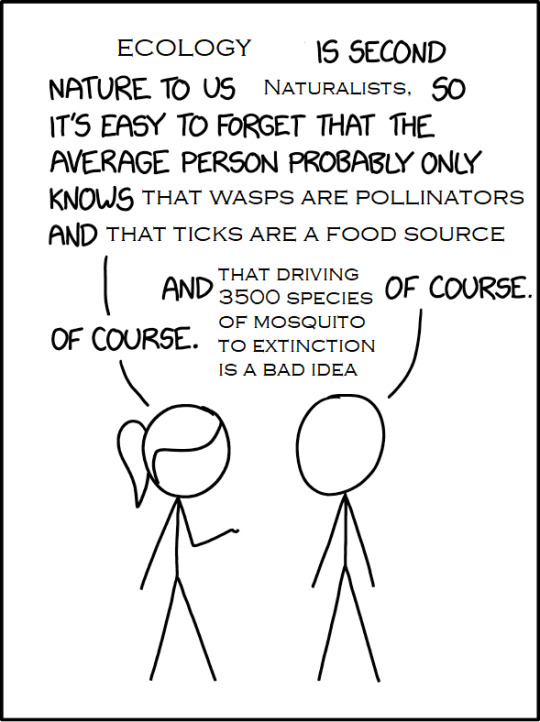
12K notes
·
View notes

